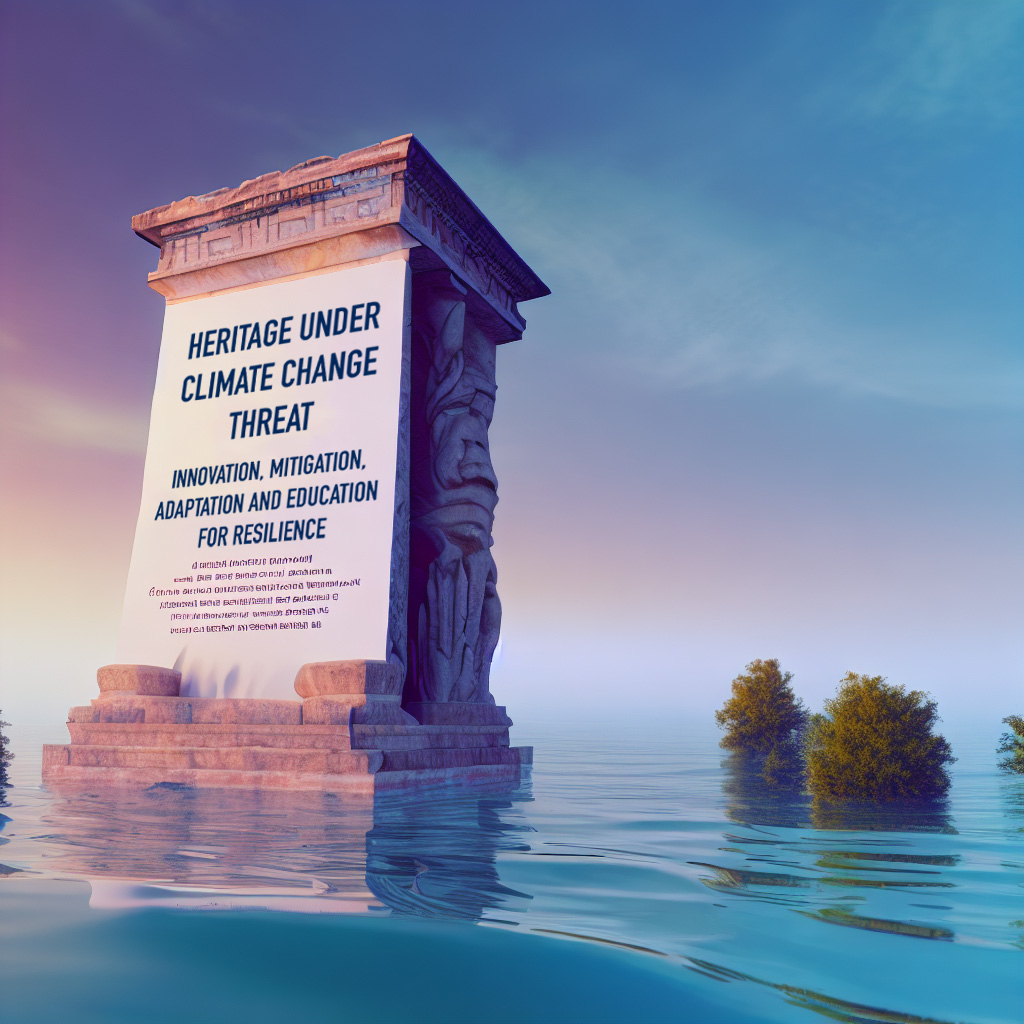CAA-GR is organising the special session HERITAGE UNDER CLIMATE CHANGE THREAT: Innovation, mitigation, adaptation and education for resilience at the Cultural Heritage and New Technologies (CHNT) 2023 Conference “Cultural Heritage as a Resource”, taking place Nov 15-17, 2023, in Vienna, Austria, and is calling researchers in this challenging topic to submit their works.

Climate change refers to long-term shifts in temperatures and weather patterns.
The United Nations
Climate pattern shifts have only been occurring due to natural causes, until the 1800s, when intense human activities, primarily due to burning fossil fuels like coal, oil and gas, became a major contributing factor. Since that time, the Earth has become about 1.1°C warmer, with the decade 2011-2020 being the warmest on record. Practically, climate change is manifested as a percentage rise of carbon dioxide and methane in the atmosphere with direct impact on the global temperature that accelerates ice melting and sea level rise, and ignites more frequent severe weather events. In addition, the relative increase in humidity near water bodies provokes changes in the biosphere resulting in extreme biological contamination.
This change affects all types of heritage assets, including (a) monuments, sites, and (b) artefacts in sites, like frescoes and mosaics, threatened with submerging, degradation, collapse, etc., in various time scales, as well as (c) artefacts in collections, that will need intensified efforts for micro-climatic control potentially resulting in less-green museums and further accelerating climate change.
In this session, CAA-GR is invites scholars from various disciplines (Archaeologists, Earth scientists, Material scientists, Conservation specialists, Geospatial experts, Digital Archaeology researchers, Heritage managers, Sustainable design experts, and more) to participate in a discussion on the effects of climate change on heritage. The aim is to contribute to multidisciplinary research and address challenges in data collection, monitoring, mitigation and adaptation measures, fostering inclusive cultural responses, and community involvement in safeguarding cultural heritage.